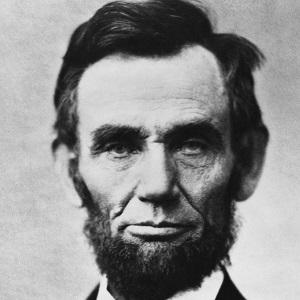Abraham Lincoln: The Visionary Leader
History
Abraham Lincoln, the sixteenth U.S. President (1861-1865), led the nation through its darkest hours, the American Civil War, and played a pivotal role in abolishing slavery with the 13th Amendment. Born on February 12, 1809, Lincoln's life was marked by perseverance, visionary leadership, and unwavering dedication to his principles.
Early Life: Raised in humble circumstances, Lincoln was largely self-taught. He educated himself through voracious reading of books like the King James Bible, Pilgrim's Progress, Robinson Crusoe, Aesop's Fables, and Franklin's Autobiography. At 23, he partnered with a friend to run a small general store in New Salem, Illinois, but the venture struggled.
Political Ascendancy: Lincoln's rise in politics was characterized by his exceptional oratory skills and commitment to principle. In 1858, he participated in seven debates against Stephen A. Douglas during their Senate campaign, solidifying his national reputation. He married Mary Todd in 1842 after previously calling off their engagement.
Presidency: Lincoln's presidency was defined by the Civil War, which tested his leadership and resolve. Despite facing criticism and setbacks, he remained steadfast in his commitment to preserving the Union and ending slavery. His Emancipation Proclamation (1863) and the 13th Amendment (ratified in 1865) stand as testament to his enduring legacy.
Numerology
Life Path Number: The Traveler - 5
As a 5 Life Path, Lincoln embodied several traits that shaped his presidency:
- Change and Freedom: Lincoln's life was marked by constant change. He moved from Kentucky to Indiana at age seven, and later to Illinois as a young adult. This adaptability served him well in navigating the tumultuous political landscape of his time.
- Risk Taker: His decision to run for President on the newly formed Republican Party was a significant risk that paid off.
- Open-Minded and Smart: Lincoln's ability to engage with diverse viewpoints and learn from them was evident in his political career. He worked collaboratively, appointing Cabinet members from various political factions.
- Entertainer and Communicator: Lincoln's exceptional oratory skills captivated audiences and influenced public opinion. His speeches, such as the Gettysburg Address (1863), remain iconic today.
However, Lincoln also faced challenges typical of Life Path 5:
- Indecisive at Times: While his decisive actions during the Civil War are well-documented, Lincoln also struggled with indecision in certain situations.
- Risk of Addiction: While not applicable to Lincoln's personal life, historically, some 5 Life Paths have struggled with addictions.
Day Energy: The Child - 3
Lincoln's Day Energy as a 3 further enhanced his communication skills and creativity:
- Exceptional Communicator: His powerful speeches, filled with metaphor and anecdote, resonated deeply with listeners.
- Storyteller: Lincoln's stories, often laced with humor, humanized complex political issues.
- Highly Creative: His ability to craft compelling narratives, such as the "House Divided" speech (1858), demonstrated his creative prowess.
Yet, Lincoln also had to contend with 3's potential pitfalls:
- Lack of Discipline: While not evident in his political career, this trait may have contributed to the early struggles of his business venture.
- Immature Behavior: Lincoln occasionally displayed impulsive behavior, such as his initial decision to call off his engagement to Mary Todd.
Astrology
Chinese Zodiac: Rat
Born in the Year of the Rat, Lincoln embodied several traits associated with this sign:
- Intelligence and Charm: His intellectual prowess and charisma helped him navigate complex political landscapes.
- Adaptability and Sociability: These qualities enabled him to build bridges across diverse factions during his presidency.
Western Zodiac: Aquarius
As an Aquarius, Lincoln exhibited several traits characteristic of this sign:
- Visionary: His unwavering commitment to preserving the Union and ending slavery demonstrated his ability to see beyond immediate challenges.
- Independent and Original Thinker: Lincoln's unique perspective on politics and governance set him apart from his contemporaries.
Conclusion
Abraham Lincoln's Life Path as a 5 (The Traveler) and Day Energy as a 3 (The Child), coupled with his astrological influences, shaped him into a visionary leader who navigated the challenges of his time with adaptability, intelligence, and unwavering commitment to principle. His ability to communicate complex ideas effectively and his willingness to engage with diverse viewpoints enabled him to lead the nation through one of its most divisive periods. Despite facing personal struggles and setbacks, Lincoln's enduring legacy lies in his ability to balance change and steadfastness, adaptability and principle, making him a true embodiment of his Life Path and Day Energy.

